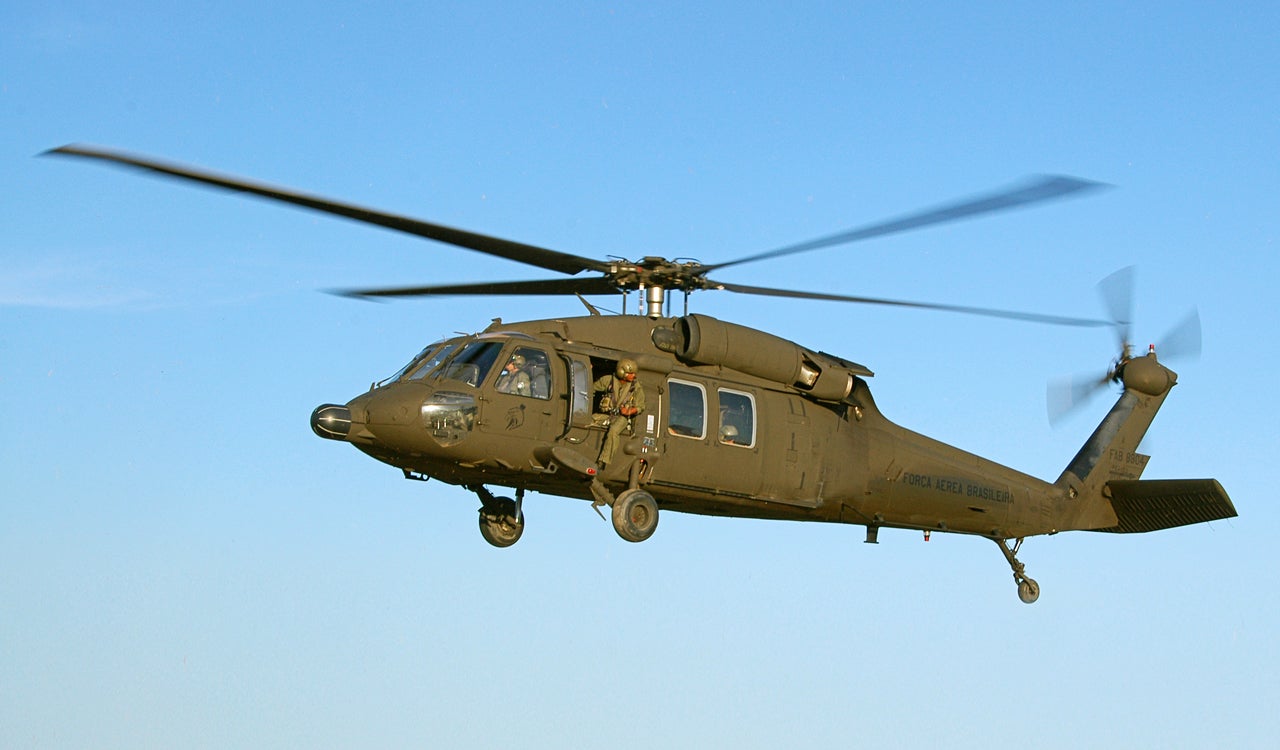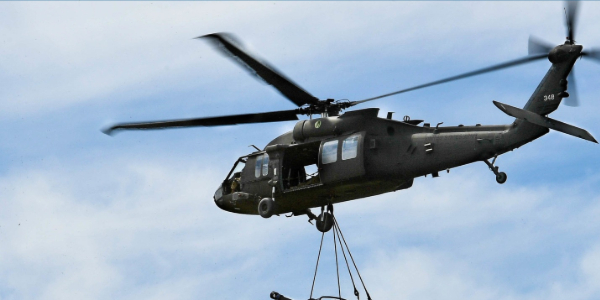UH 60 Black Hawk Helicopter Variations and Their Uses
UH 60 Black Hawk Helicopter Variations and Their Uses
Blog Article
The Function of Aircraft fit International Transport and Profession Characteristics
The advancement of aircraft has indelibly transformed worldwide transportation and trade dynamics, facilitating unprecedented degrees of connection and effectiveness. With the establishment of robust air cargo networks, businesses can now browse international markets with exceptional rate and dexterity, thereby redefining supply chain techniques. This change is not without its challenges, as the aeronautics industry grapples with sustainability worries and regulatory pressures. As we explore the multifaceted impacts of airplane on worldwide trade, it is important to consider just how these elements will certainly form the future landscape of air travel and its duty in the economic situation.

Advancement of Air Transportation
The advancement of air transportation has actually been marked by substantial technical innovations and advancements that have actually changed the means people and goods relocate across the world. From the Wright siblings' first powered trip in 1903 to the development of supersonic jets, each turning point has actually highlighted the ruthless pursuit of effectiveness and speed in air traveling.
The latter part of the 20th century saw the introduction of commercial aeronautics as a practical setting of transport, defined by the introduction of jet engines, which changed air travel by significantly lowering trip times. Additionally, innovations in navigating and interaction modern technologies have boosted functional efficiency and safety and security, permitting even more complex trip paths and routines. The surge of air freight in parallel with guest services has even more emphasized the convenience of air travel. As we want to the future, arising technologies such as autonomous and electrical airplane promise to redefine the air transport landscape, guaranteeing ongoing advancement and adjustment to global demands.
Influence On Global Trade
Air transport has profoundly reshaped global trade by promoting the swift activity of products throughout vast ranges. This expedited logistics ability enables organizations to react quickly to market needs, thus boosting supply chain efficiency. The ability to deliver perishable items, high-value things, and time-sensitive products has opened brand-new markets and chances for various industries, significantly affecting trade patterns.
In addition, the advancement of air freight networks has actually fostered globalization, allowing companies to resource materials and items from different components of the globe flawlessly. This interconnectedness reduces preparations and costs, permitting services to stay affordable in a progressively international industry. Furthermore, air transport plays a critical duty in e-commerce, where consumer assumptions for quick distribution have actually driven a surge in demand for air cargo solutions.
The impact of airplane on global profession encompasses the production of calculated profession routes, linking regions and facilitating worldwide collaborations. Countries that purchase air transport facilities often experience improved financial growth and enhanced foreign straight financial investment. In general, the development of air transport has not just changed the logistics landscape but has also end up being an essential element in the dynamics of worldwide trade.

Financial Benefits of Aviation
A durable aeronautics field produces considerable financial benefits, adding to job development, tourism, and general financial growth - uh 60. The aeronautics market supports countless jobs official statement globally, ranging from direct work in airlines and airports to indirect roles in industries such as hospitality, transportation, and logistics. According to sector records, for every single job in the aviation field, about 3.5 added tasks are created in the more comprehensive economic situation
Tourist is a crucial component of the economic benefits stemmed from air travel. Flight promotes global tourism, permitting travelers to explore diverse destinations, which consequently promotes you can try these out local economic situations. Countries that purchase their aviation facilities often experience raised traveler arrivals, causing higher spending on solutions such as resorts, destinations, and restaurants.

Additionally, aviation enhances international connectivity, making it possible for businesses to access new markets and sources effectively. As a result, sectors such as shopping and production benefit exceptionally from dependable air transportation, additional driving economic growth.
Difficulties Dealing With the Aeronautics Industry
Navigating a complicated landscape of regulative, environmental, and economic obstacles, the aeronautics industry encounters substantial difficulties that intimidate its sustainability and growth. Laws bordering security and protection are constantly advancing, requiring continuous compliance and adaptation from suppliers and airlines (uh 60). This can result in increased functional costs and source allowance that interferes with advancement and growth efforts
Additionally, ecological concerns have come to be critical, with growing scrutiny over carbon discharges and noise air pollution. The sector is under stress to adopt greener methods and modern technologies, which frequently call for substantial financial investment in study and advancement. Balancing these ecological duties with the demand for flight offers a considerable difficulty.
Financial changes, such as climbing fuel prices and geopolitical unpredictabilities, further complicate the landscape. Airline companies frequently grapple with unstable operating costs and rising and fall passenger demand, which can impact productivity and long-lasting preparation. Labor shortages and skill spaces in essential locations add another layer of intricacy, preventing functional effectiveness.
Ultimately, addressing these complex difficulties is important for the aviation sector to keep its critical function in international transport and profession, while ensuring resilience and versatility in an increasingly open market.
Future Fads in Flight
Shifting and arising modern technologies customer preferences are positioned to reshape the future of air travel significantly. The assimilation of fabricated knowledge and device learning is anticipated to enhance operational effectiveness, streamline airport terminal procedures, and boost client service. Predictive analytics will assist in a lot more accurate demand forecasting, permitting airlines to maximize trip routines and pricing models.
Sustainability is becoming a key vehicle driver in flight, with the aviation sector significantly concentrated on reducing carbon emissions. Innovations in airplane design, such as electrical and hybrid propulsion systems, are being checked out to fulfill environmental targets. The fostering of lasting aviation gas (SAFs) is read review expected to play an essential role in attaining net-zero discharges by 2050.
Customer choices are changing in the direction of personalized travel experiences. Airline companies are spending in innovative data analytics to customize solutions and enhance consumer involvement, making certain a more personalized trip from booking to arrival. In addition, the rise of remote work may result in boosted demand for recreation travel, as people seek to combine work and getaway.
Final Thought
Finally, aircraft significantly affect global transportation and trade characteristics by promoting fast movement and enhancing supply chain effectiveness. The development of air transportation has transformed worldwide profession, generating substantial economic advantages while likewise providing difficulties that require strategic administration. Future fads indicate an ongoing reliance on aviation for business, highlighting its integral duty in globalization and financial advancement. The continuous adjustment of the air travel industry will be crucial for sustaining its payments to the global economy.
The latter part of the 20th century witnessed the emergence of commercial aviation as a practical setting of transport, defined by the intro of jet engines, which transformed air travel by dramatically reducing flight times. The rise of air cargo in parallel with passenger services has actually better highlighted the flexibility of air travel. In addition, air transportation plays a critical function in ecommerce, where consumer expectations for rapid delivery have actually driven a rise in demand for air freight solutions.
In general, the development of air transport has not just changed the logistics landscape but has also come to be an essential component in the characteristics of global trade.
Sustainability is coming to be an essential driver in air traveling, with the aeronautics market significantly focused on decreasing carbon exhausts.
Report this page